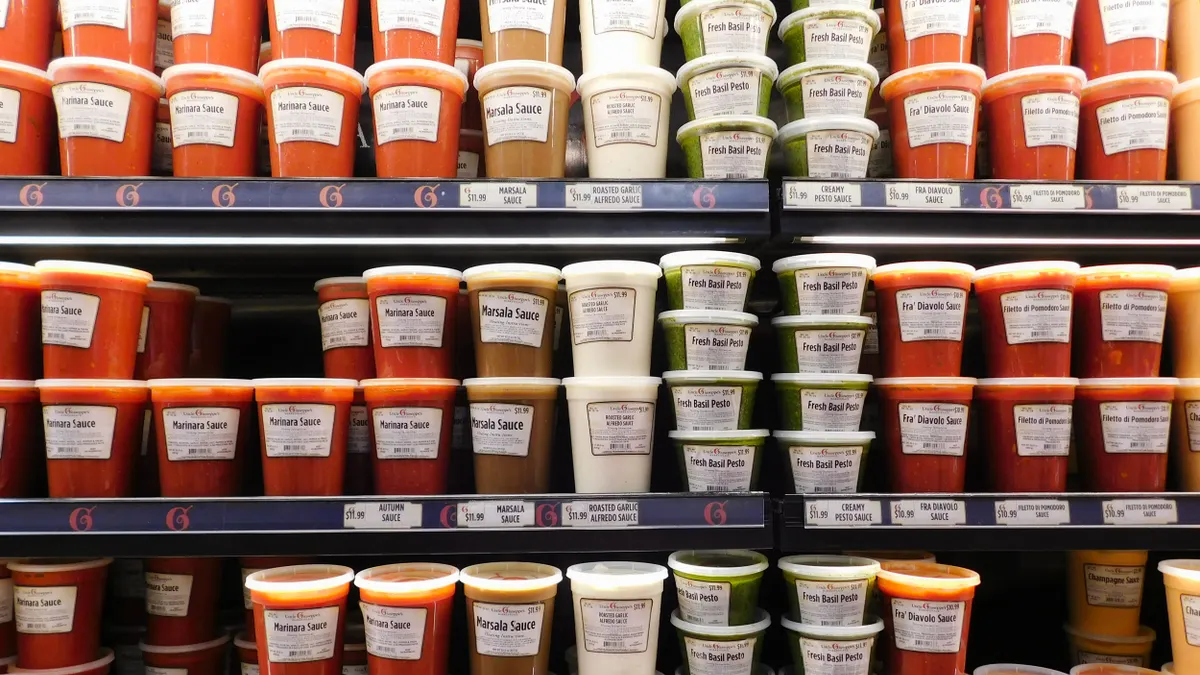It's not easy being green, but Target is responding to the challenge. Late last month, the big box retailer unveiled a sweeping new approach to its chemical strategy, promising increased transparency and healthier, more natural products and operations.
Target's commitment to greener retail goes beyond similar campaigns spearheaded by its rivals. It has pledged to list all ingredients in all owned and national brand products by 2020; will formulate beauty, baby care, personal care and household cleaning products without phthalates, propylparaben, butyl-paraben, formaldehyde, formaldehyde-donors or nonylphenol ethoxylates by the same time; will produce textiles without adding perfluorinated chemicals or flame retardants that are potential carcinogens or pose harm to guests, workers or communities by 2022; and will leverage its size and scale to work with vendors make both products and operations greener. Target also said it expects to invest up to $5 million in green chemistry innovation by 2022.
While “natural” products have been around for a while — and niche brands in particular are seizing on consumer interest in the natural trend — groups that have pressed for increased disclosure of chemical additives and decreased use of toxins in products praised Target’s move as something of a game-changer.
“This is a big deal,” Mike Schade, director of activist coalition Safer Chemicals, Healthy Families' “Mind the Store” campaign, told Retail Dive in an email. “Target deserves a lot of credit for expanding their commitment to drive harmful chemicals out of products. Target has set clear deadlines for action on priority chemicals of concern such as phthalates and flame retardants, and committed to publicly report on progress in implementing their new policy. The company to their credit also expanded their chemical reduction actions to other product categories such as textiles.”
Target's move is an even more vital shot across the bow in an era when consumers are better informed about chemicals and their effects on humans, especially on child development, Schade added.
“With these new commitments, Target has made important improvements that up the ante for the entire retail sector,” he said. “We hope these new commitments will help drive a race to the top among the nation's largest retailers. Other retail laggards like Amazon, Costco, Kroger and Albertsons clearly need to catch up.”
Better living through chemistry
There is a good reason why so many chemicals go into many household and personal care products and clothing: To make those items easier to use, more palatable or even more effective. Chemicals help lotions feel and smell better, for example, or extend their shelf life or (when it comes to clothing) enable them to retain their colors or even make them less flammable.
This "better living through chemistry" philosophy has also meant that consumers in developed countries are exposed to many more chemicals in more instances than people in previous generations — to the point where many physicians advise limiting exposure to them. Consumers are increasingly aware of the problem, which has boosted the fortunes of brands like The Honest Co., a Target bestseller that last year attracted the interest of consumer products giant Unilever. (Unilever ending up buying chem-free household product company Seventh Generation instead.)
But regulation of ingredients is tricky, because the federal government doesn’t limit them until harm has been demonstrated by a preponderance of studies or by some kind of health event. That means that shoppers are often left to decide on their own whether chemical ingredients are safe enough in the meantime, and their information can come from a variety of sources, some more reliable than others.
The truth is that without many of the chemicals on Target’s list, it can be hard to maintain a product’s appeal or effectiveness — a conundrum demonstrated by Honest Co.’s struggles. The consumer goods company, which promises “safe and effective products for family and home,” faced complaints from consumers that its sunscreen allowed severe sunburns and from advocates that its laundry detergent contains a chemical that the company said it doesn’t contain (and that co-founder Jessica Alba has told people is a toxin to avoid).
More generally, it can be difficult for consumers to know what chemicals that many products like fragrances contain in the first place. Some chemicals sound bad and are pretty innocuous or even essential (heard of “oxidane”? It’s also known as "water"), while others leveraged for good (like flame retardants) cause health problems that overshadow their intended value.
But even if consumers can’t always sort all of this out, trends favor companies that eschew scary-sounding additives, according to experts from professional services network PwC, who didn’t speak on Target’s move per se but addressed the landscape in general.
“Consumers are more savvy about the fact that they can ask — they realize that they have a really strong voice,” PwC Chief Purpose Officer and Corporate Responsibility Leader Shannon Schuyler told Retail Dive. “Whether it’s a company creating its own products or a company putting those products on shelves, we’re seeing a trend toward that more educated consumer. What we’re seeing in this area is more and more companies having to look at not just the products they create, but also at their supply chain.”
The pressure is on
At the moment, consumer pressure is mostly focused on chemicals in their food, and shoppers may be more tolerant of, say, brown spots on fruit they know is organic, or textures in nutrition bars they deem well formulated and free of additives. But so far there’s less patience when it comes to consumer products, according to Steve Barr, PwC Consumer Markets leader.
“The interesting thing we still have to address —and I think this is the difference between consumer products and food — is that consumers still expect the products to achieve their desired results,” Barr said. “I think that’s the dilemma: The ultimate winner here is going to be the retailers and the CPG companies that can achieve products that are both highly effective, and also good for the planet and good for you.”
That's likely the impetus behind Target's $5 million investment in "green chemistry innovation," another way for the retailer to maintain the favor it enjoys among higher-income consumers. It's a move that echoes the retailer's "cheap chic" approach — i.e., differentiating its merchandise so that it can avoid promising the lowest prices (as rival Wal-Mart does). That differentiation is something the company needs, considering its faltering sales, and the truth of the matter, which it learned long ago, is that it won't win on price alone.
But Target Chief Sustainability Officer Jennifer Silberman said the company fully expects other retailers and consumer product makers to respond with similar chemical transparency pledges, and suggested that "achieving industry alignment around what makes a sustainable and better-for-you product" is in fact a major part of the endeavor.
“Obviously, first and foremost we developed this strategy with our guests in mind,” Silberman told Retail Dive. “Ultimately, the data shows that our guests and customers in general are looking for safer and better products, that there are chemicals that are worrisome for them. Certainly this benefits our immediate scope — our own brands, our national brands and our operations at Target. But it was also support the future growth of transparency. It’s an opportunity, as a company who has the size and scale and the diversity of suppliers, and a great way to signal to the industry and to our guests and to be able to effect change.”
Target expects the floodgates to open, and that what Safer Chemicals, Healthy Families calls its "laggard" rivals will get up to speed sooner rather than later.
"There will be a lot of collaboration in the industry," Silberman said. "We certainly have a cross-functional team of chemists, product designers, and sourcing teams that are thinking about the impact of unwanted chemicals in the manufacturing of our products. We've worked with our vendors and our national brands, ensuring that our strategy is sincere and using science to make those decisions. Eventually, we will get there."






















